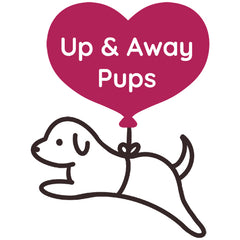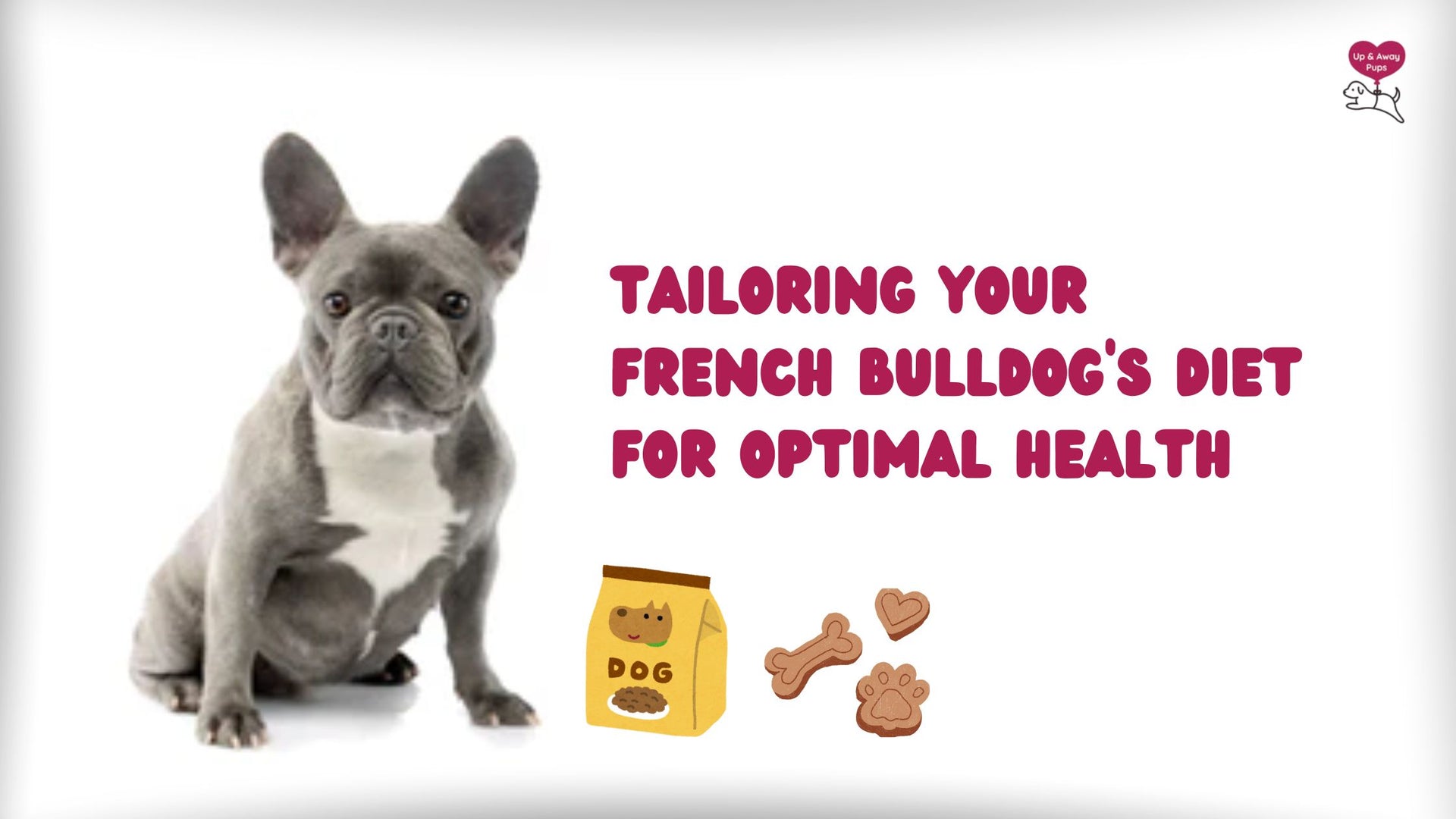Nutrition Needs of Small Breeds: Tailoring Your French Bulldog's Diet for Optimal Health
Owning small dog breeds like French Bulldogs comes with the responsibility of meeting their distinctive nutritional requirements. These muscular and compact-sized dogs need an optimal diet catering distinctively to their size, breed features, and metabolism. Knowing about the key needs of the diet of a French Bulldog leads to better health, happier, and longer life. These small dog breeds have unique dietary needs compared to the other bigger dogs. Their compact-sized bodies indicate that their nutrient and caloric intake is monitored closely. Let us now discover the ways to streamline your diet regime for your French Bulldog, ensuring they get the essential nutrients.
Understanding the Nutritional Needs of French Bulldogs
Boston Terriers, Cavalier King Charles Spaniels, and Pugs are dog breeds that share similar traits to French bulldogs in addition to their sizes. These breeds are known for their higher metabolism rates. These dogs may keep up higher metabolism rates but have less space for their stomachs, and thus, their dishes should be nutritionally dense meals without being oversized.
The French Bulldog must be put on a diet that is loaded with proteins and other essential fats plus vital vitamins and minerals in order to sustain the muscular body of the dog. Protein from animal sources supplies the muscles for their upkeep and repair, while fats make energy and support skin and coat. Carbohydrates should also be present but should not be consumed in large quantities because small breeds need less carbohydrates than large breed dogs.
Also Read : French Bulldog Vs English Bulldog
Key Nutrients for Small Breeds
- Protein: French Bulldogs and other small breeds, including Shih Tzus and Miniature Schnauzers, enrich themselves with proteins. They consume foods such as chicken, turkey, lamb, fish, and other quality protein foods needed for muscle building and repair. Including lean meats in their diet helps them build muscular muscles without putting unnecessary fat on their frames.
- Fats: The French Bulldog requires fat to meet its energy requirements and also for a healthy, knot-free coat. Omega-3 and Omega-6 fatty acids, also known as fatty acids, are very useful for the skin since the skin becomes dry and itchy in Chihuahua and Dachshund breeds. It is crucial to add to their diet fish oil and flaxseed oil, among other natural sources, that are relatable to their treatment process.
- Carbohydrates: While it is correct that small breed dogs should consume fewer carbohydrates when compared to the large breed, his need for energy from the complex carbohydrate source is still proper. They can be obtained from foods like brown rice and sweet potatoes. With regard to fats, it is suggested that healthy fats must be eaten. There should not be a lot of fillers, and it is helpful not to include potatoes or corn, especially soy – it places unnecessary weight on your Frenchie.
- Vitamins and Minerals: A couple of dog breeds, like French Bulldogs, Yorkshire Terriers, and Pomeranians, need the important minerals and vitamins to incorporate into their meal plans. Vitamin A can help revitalize skin and eyes, calcium within the bones, and phosphorus necessary for teeth. This is especially so for small breeds, for they, more often than not, may develop dental complications; bone-healthy nutrients should thus form part of the diet.

Portion Control: Feeding Your French Bulldog the Right Amount
Offering portions is even more critical when trying to feed small, physically built dogs like French Bulldogs. Overfeeding leads to obesity, which is still almost the order of the day with small breed dogs, such as the Maltese and Bichon Frise. Obesity diminishes a dog’s life expectancy and alters general health, for example, joint and heart disease.
Small breed owners should advise their dogs to eat small meals throughout the day rather than big meals twice a day. This keeps the dog energized and reduces the possibility of emaciation and other digestion complications, which are common among French Bulldogs who are brachycephalic or have flat noses.
Food Allergies and Sensitivity Management
The French Bulldog and other small dog breeds are prone to food allergies and sensitivities. A few of the common sorts of allergies arise out of source, including grains, wheat, corn, as well as proteins. For example, if you see signs such as itching, ear infection, or gastrointestinal issues, then be sure a hypoallergenic or limited-ingredient diet is in order.
Refusing to feed the dog a diet that contains new protein types like venison or duck and grain-free formulas can reduce allergy effects. Ensure that they are fed restricted levels of dairy products; however, focus more on products that never contain artificial preservatives and additives that decrease sensitivities.
Hydration: A Key Component of Your French Bulldog’s Diet
It cannot be stressed enough just how important water is in the well-being of your French Bulldog. Active and high-metabolism small breeds, especially French bulldogs, are more susceptible to dehydration. Provide water often, but make it clean, and observe their water-taking prowess, making sure they hydrate when need be.
One of the complications of this problem is the formation of urinary tract problems in dogs, and the risks are especially high in small breed pups like the Miniature Dachshund and the Jack Russell Terrier. Wet food or adding a little wet food to dry kibble will also boost the consumption of water as much as possible if the dog drinks less as required.
Foods to Avoid for Small Breeds
There are different forms of foods that you should refrain from offering your French Bulldog or other small dog breeds like Miniature Poodles.
- Chocolate: This leads to greater levels of toxicity in dogs and other small dog breeds, so ensure that you monitor this.
- Grapes and Raisins: They contain toxins that are dangerous for dogs' kidneys, and it is not recommended to feed small-breed dogs with them.
- Onions and Garlic: These may lead to anemia in the dog's close community, and small breeds of dogs are most sensitive to toxicity.
- High-Fat Foods: It is caused by fatty diets that result in fatty meats or fried foods that cause pancreatitis, which is pronounced in small breeds.
Tailoring Commercial Dog Food to Your French Bulldog’s Needs
There is a variety of commercial foods for dogs, but not all dog foods contain the right foods for your French Bulldog, depending on the quality of their ingredients. Purchase brands that offer various recipes to accommodate small breed requirements as these foods are formulated for that reason because, as you might have surmised, small breed dogs require just a small amount of nutrients that are correctly balanced to support their tiny bodies and extra energy demands. Used for small breeds, with kibble shaped and sized to be easily recognizable in the shape of the mouth of dogs.
Conclusion
Feeding the nutritional needs of a small breed like the French Bulldog is beyond choosing any dog food. What they eat should not instigate diseases that originate from metabolic and size disparities. The French Bulldog diet consists of the appropriate level of proteins, carbs, fats, vitamins, and key components that keep them active and healthier.


